The Dreadnought class is the replacement for the Vanguard class of ballistic missile submarines and they will carry Trident D-5 missiles – the UK’s nuclear weapons.
The class has generated controversy because of its cost and also as some political parties and campaign groups such as the Campaign for Nuclear Disarmament (CND) or Trident Ploughshares oppose the retention of any nuclear weapons by the UK on moral or financial grounds.
We’re just going to look at the cost.
“We estimate the four new Dreadnought submarines will cost £31 billion spread over 35 years. On top of this, we are setting a contingency of £10 billion.”
We understand that the figure of £31 billion for the lifetime costs include inflation.
It’s expected that just the submarines and their infrastructure will cost an immediate £15 billion to build. This can be broken down as such:
- £0.25 billion to participate in the Trident D5 missile life extension programme.
- £11 billion for a class of four new submarines.
- £2 billion for possible refurbishing of the warheads.
- £2–3 billion for infrastructure.
According to a series of statements made in Parliament by ministers and the MoD, the annual operating costs of the Trident programme itself will be around 5 to 6 per cent of the defence budget.
This means that the Trident programme as a whole, including the submarines, will have a running cost of around £2 billion per year over their 35 years of life, equating to around £70 billion.
Estimates of the long term costs of big capital spends are notoriously hard to predict and can often fall or rise drastically.
The costs associated with the programme are comparable to the procurement costs of major weapons systems such as Typhoon or Lightning aircraft.


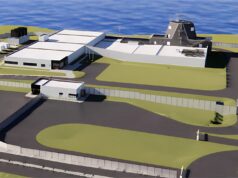
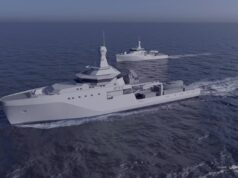
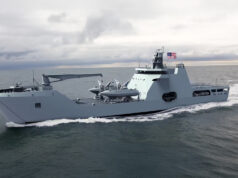

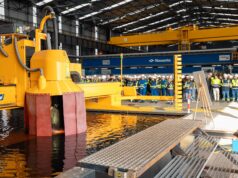
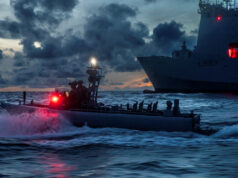


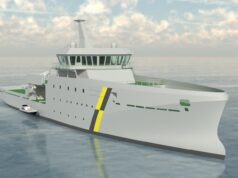


Can someone tell me WHY an SSBN costs so much more than an SSN? Size? Missile Compartment?
I’ve never understood as I thought there was little difference between the two save sheer size, which I’ve read elsewhere does not always equate to massive cost difference.
At a guess, I’d say simple size is probably the biggest contributer to the cost. An SSBN is around 2-3 times bigger than a comparable SSN (Trafalgar’s were 4,500 tonnes, Vanguard’s were nearly 16,000)), which explains it in part. Then consider that all the expensive systems that keep an SSN running have to be scaled upwards as well.
Missile size and the necessary reinforcements against enigine blast. Plus the sheet size of boat in addition to only building 4 thus spreading R&D costs to only 4 units. For example despite being planned at a being 1/3 larger the Columbia class is not going to cost much more under US estimates due 12 being commissioned within 10yrs of each other.
Too late now most likely, but I wonder if it would have been practical to just jump in with the Columbia program instead. They fire the same missile anyways.
There already is a lot of cross design.
The design contract announced a couple of weeks ago will include work covering both classes.
They will more-or-less be cousins
Not really. The missile section is the same for both boats. The rest of the submarines design has a number of very different features.
Have you checked the price of the Columbia’s recently?
UK submarine building cost is well below US per ton of finished boat.
Cheers.
Thats an interesting point, my conclusion is that it’s all down to size, tonnage and the cost of the missile launch compartment.
A larger submarine will cost more than a smaller one. When it comes to building submarines steal is not cheap.
The USA not so long along was planning on a single hull design for SSBN(X) and future SSN in the hope of reducing design costs, but I understand this has been abandoned and that the future SSN will be an improved Virginia class.
It’s a question I’ve wondered about for quite a while now as well.
One guess that I came up with was that one factor might be that perhaps increasing the displacement has a more dramatic upward effect on price than it does for a ship because of the pressure hull. I can imagine that for a given dive depth, and hence the requirement to maintain integrity when subject to a specified design pressure on the hull, it gets increasingly difficult (hence expensive) to do that as the contained area within the pressure hull gets bigger.
It’s obviously very classified but I also wonder, given that key criteria for an SSBN are to hide from and/or evade an enemy, whether SSBNs are typically designed for greater dive depth than SSNs since that would seem to convey benefits both for hiding and for any game of cat and mouse with an enemy SSN. If this is the case then that would further exacerbate the cost implications of my theory above.
Dive depth, interesting theory yes. Though I’d think a Hunter Killer is equally impressive in this regard.
These cost profiles don’t make sense to me
The ships and missiles will cost circa £15bn – that seems ok for an inventory of 200 missiles to be maintained and renewed, but at no point will these cost £2bn pa to run as the only costs are maintenance (included in the 31bn) and people as it does not need refuelled through its lifespan.
Therefore the costs for me are fairly fixed – An astute is on record as costing £1.2 – 1.5bn each, so we can extrapolate the cost profile for the Successor programme as double (approximation) and get to £12bn for the ships with a further £3bn for missiles and infrastructure (which is already in place for vanguard). We can therefore speculate that its lifespan is 25 years (in line with the latest reactors) and the cost should be closer to £1bn p.a for build and support over the 25 years.
£60bn is just nonsense, no wonder we are in trouble with our budgets.
What are you assuming for inflation?
Ron5
No assumptions on inflation as my assumption is the costs being opposed are costed at today rates (if not then they should be discounted). If these things are being quoted at £35bn and that includes inflation for their lifetime cost then this needs to be made clear by the MOD – again disingenuous if they then add this to the £178bn equipment budget.
It’s a good point though as £35bn in 30 years time will be about £20bn in todays money. I am all for transparency but not when it makes things seem overly expensive.
If you said to people for the next 25 years it will cost the country £2bn p.a. To have a nuclear deterrent I think most will accept that. The fact it is likely to be cheaper (in todays money) is a good thing in my book.
Hi Ron5
I have responded (politely) but all my comments today have been moderated and seem to have been removed.
In this day and age, nuclear weapons no longer translate in to national power. Instead we should invest in more conventional weapons such as MOABs, drones and carriers.
It is not a one or the other choice. You have to have both because you cannot rely on another nations Nuclear Umbrella. But conventional weapons are needed for less drastic operations.
Why do we need a nuclear umbrella? Lets face it the only time we would ever dare use nukes is if we where nucked are selves, and if that’s the case what’s the point. Isn’t it better to not exist but be remembered, then not exist and destroy anyone left to remember us. Also parking a carrier field with f35s, or having something like a B1 with a MOAD is far more threatening to any potential enemy such as NK and Iran as they know we would be much more willing to use them.
Britain needs it for the same reason Russia needs it & China needs it.
And no… a B1 which Britain doesn’t have and is an easy aircraft to shoot down threatens no peer state.
Allies do not all the time share the same goals and cannot be your sole source of Nuclear deterrent. For instance say Russia invades the Baltics and the rest of the Ukraine. While someone just as if not more isolationist than President Trump is in office. Would that President uphold Article 5 or would they say twice was enough to preachy tastes anyway? Contrary to popular belief in Europe no treaty or even the Senate can compel the President to war. Can Europe withstand all out war with Russia in their current circumstances and bickering, with only conventional arms? I doubt it I would be impressed if the Germans got 1/3 of their AF off the ground and half their tanks moving to the border in time give current readiness status. The only way to dissuade is holding Moscow under threat of Nuclear bombardment.
Valid argument, but I still doubt America would remain natural in such circumstances. Besides the economic system of the world today would make it suicidal for a nation like Russia or Iran to go to war with Europe.
However, I believe tactical nuclear weapons are worth while for such a situation.
Playground rules 101.
Deterrence; a thing that discourages or is intended to discourage someone from doing something (like launching nuclear weapons in the first place)
A1 comment!
TH if Germany had developed nuclear weapons before us you would be called Thelmut Heinz and not be writing in English, ditto Japan.
Muppet.
I personally am happy to know that if any enemy attacked the uk with a nuclear weapon we would retaliate and destroy them. That is why we have nuclear weapons, they are a deterrent. The only way we could get rid of nuclear weapons now is if the whole world did the same. We cannot put the genie back in the bottle now.
Your argument about Germany has no relevance in this argument. 1st they didn’t so doesn’t matter, 2nd we never used nuclear bombs on germany and 3rd you’re talking about a conflict over half a century ago. Not to mention Nuclear weapons at the time where relatively small, and could realistically be used.
God I hate to admit it but I actually agree with TH on one thing.
Which is?
That they are both delusional.
These countries constant reliance on the US for both Nuclear and conventional protection is what has caused the renaissance of American isolationism. Therefore in part the Presidency of Donald J. Trump. Who I might add won the veterans vote by a 2 to 1 margin.
The US would likely still intervene but and this is a big one. You must remember how long the US waited in WWII and how many cities America was willing using what is now conventional munitions to level. In order to reduce military casualties. The current ROE of the USAF are only in place due to our current insurmountable advantage over our adversaries. In a war with Russia or China the ROE would probably revert to Bombs Away.
Who says that Germany is far more important than the UK Geopolitically. I think you will find that the UK has far more sway globally than Germany and if the UK had remained in Europe was destined to become the EU’s biggest GDP by 2020’s (source HSBC research).
Germany has definitely benefitted more than the UK post war – but that does not mean it is more important – and as stated prior to Brexit the UK’s economy was on target to overtake it. So not sure why you are making these Wild statements TH
You’re really posting this on here TH?
Mr Bell is quite right.
Germany tried very hard to develop nuclear weapons and would have won the war if they had got there first.
After the war West Germany was not allowed to have nuclear weapons and was admitted to NATO the same year the Warsaw pact was signed.
Today, no one wants Germany to have nukes, or in fact any other members of NATO that don’t already have them.
Because they are a bunch of blood sucking parasites in most of those cases. Or so closely allied or just plain to the US they have no need. Also attempting to develop Nuclear weapons in the same hemisphere as the United States. The US has altered governments in South America for far less (bananas, cocaine export, Contract/Sandistas).
Contra
They do need nukes but cant afford them or wont be allowed to develop them by bigger states due to the increased threat. Most of these countries are under the nuclear protection of the US, UK or France.
At 5 to 6 per cent of the defence budget, it’s an insurance policy.
But I still think there should have been a sensible debate about whether it was needed, whether it was effective, and even if it’s enough to have just one boat at sea, or should there be two, with perhaps one more in class to make that possible. And would the money have been better spent on conventional kit.
Hello dadsarmy 🙂
It would be the last 5% of the budget I would cut. I can live with one at sea all the time.
Would prefer two (which would mean five) but would die in a ditch over a cut to three.
The LibDems thought of having 3, none at sea, and sending one out in case of increased tension. Thereby increasing the tension.
Oh dear.
Yes, 4 is minimum.
That debate has happened again and again and again. Trident wins.
Because they are relying on the protection of the UK, French and American nuclear weapons. As long as countries like Russia or China have nuclear weapons someone in the West must also have them. If Russia decided to annex Latvia because there are ethnic Russians there then the West could only protest if we didnt have weapons at least as powerful as Russia. In reality russia or china would just have to threaten and make ominous comments and we’d have to agree. Using conventional forces against a nuclear opponent would be pointless. And as Trump has shown we cant rely on America to always get our back.
Russia threatens Europe, Europe would just have to meekly agree and the US would mind it’s own business.
I think the real question should be why isn’t Europe sharing the cost of the UK’s and French nuclear weapons. After all they are not just protecting our countries but Europe as whole as we are all quite close, not to mention in NATO.
What we need to do yeah is stick Trident right up kim Jong uns’ ass before he gets ideas above his station.
I’m a big bully, right: give me your sweets or I am going to thump you and none of your mates are going to help you:
OR if you like I want your country because it has many values I need, resources, strategic location etc and unless you come quietly I shall nuke you!
None of your mates will help you and because you got rid of all your nukes it will take you at least ten years to re establish your nuke capability.
Would not happen? Yeah right I suppose Hitler or Stalin wounldn’t have said just that………..
Simple test of should we keep our own deterrent.
Let’s have a straw poll:
A) Anyone think that Mr America first would take the US into a nuclear war (potentially killing hundreds of millions of Americans and destroying the nation) for another country, even a close friend like the UK. ( go on say “yes” I dare you)
B) do you trust the likes of Russia or China not to use nuclear blackmail if push came to shove (not even “use” just blackmail).
If you answer is yes to the above question by all means advocate for removing our nuclear deterrent ( although I think you may be living in an alternate universe) If your answer is no or not sure……welcome to a nuclear armed reality.
Pretty much.
Correct
TH I’m afraid that Chinese investment in the west is very much about neomercantilism. Historically nations with a mercantile agenda have been highly aggressive in nature, with trade as used as a way to gain geopolitical power. Anyone that thinks China investing in the west will somehow prevent it acting in an aggressive way needs to dust of the history books.
As for Russia, it will protect its own national interest using every tool it has avalible and if the most expedient way was to use nuclear blackmail on a non nuclear Europe it would.
If we cut down Trident to 10 tons instead of 60 with 4 warheads instead of 12, then 8 of them would fit inside an Astute with a VLS in the forward weapon room. It would probably still go 4t km so it would be enough and there would still be space for a Spearfish in each tube. We could have 11 Astutes (or even 12) and then Plymouth on it’s own would be enough and the handling and storage of 10 ton missiles would be so much easier.
While these are obviously very expensive, it is remarkable how small a percentage they take out of the defence budget, considering how much of a deterrent they will be.
I’m amazed the dopey idea of using Cruise Missiles as a “deterrent” hasn’t got a mention yet on this thread. It usually rears its head eventually. I’m sure the Limp Dems suggested it.
Great point
It needs to be stated that the UK chooses an expensive ballistic missile system to ensure that a misunderstanding is not made when launching missiles from our submarines. The UK only has nuclear ballistic missiles and it is a safeguard of sorts, in that the signature of these is totally different to a cruise missile. It’s also virtually impossible to stop once deployed as the re-entry speed is mach10+ as opposed to sub Mach for a cruise.
I am OK with this being a highly safeguarded and engineered system given the significance of what happens if it goes wrong and also part of its deterrence is the fact that it is highly likely to be successful if used.
DM you just did it, are you sure your not a secret CMADs (cruise missile as deterrent supporter).
Definitely NOT.
Can the Vanguard’s be repurposed as SSN to supplement the Astute’s?
‘According to a series of statements made in Parliament by ministers and the MoD, the annual operating costs of the Trident programme itself will be around 5 to 6 per cent of the defence budget.’
That, that is a joke. It should never have been placed in the defense budget or If it had they should have increased their funding to accomdate it. Something makes me dobut they did.
Great minds have debated the efficacy of these assets. It boils down to MAD. If the others guys have got ‘em th3n we need to keep ours. When all others are gone we could get rid of ours, but as others still have theirs we had bet keep ours, just in case.
All of those other states did not get their feet in the game at the start and have weak coalition governments who could never now afford the political or financial capacity to spend the capital in either R&D or buying into an existing system (which would cause those systems issues under non-proliferation treaties).
We got in at the start and shrewd political bargaining got us built into the A1 system from the ground up. Those other states did not have the political or financial will to get in at start. Only extremely controlled political systems or bandit, totalitarian states can now get in the game, as we are seeing with North Korea at the moment, and we have seen with India & Pakistan.
The countries you have listed sleep soundly at night knowing that if MAD did occur, there would be very little they could do about it anyway! Why spend that capital? Let’s save enough money for their foie gras, truffles and apres ski!
If we are ‘in the game’ the we need to build a system around it that will ensure its continued existence for the next 50 years when we can make another assessment into their continued necessity, depending on where we are politically at that time.
At the present time, expediency of history will tell us time and time again is that caution in willingness to cancel these will be the best policy we can have.
Great minds have debated the efficacy of these assets. It boils down to MAD. If the others guys have got ‘em th3n we need to keep ours. When all others are gone we could get rid of ours, but as others still have theirs we had bet keep ours, just in case.
All of those other states did not get their feet in the game at the start and have weak coalition governments who could never now afford the political or financial capacity to spend the capital in either R&D or buying into an existing system (which would cause those systems issues under non-proliferation treaties).
We got in at the start and shrewd political bargaining got us built into the A1 system from the ground up. Those other states did not have the political or financial will to get in at start. Only extremely controlled political systems or bandit, totalitarian states can now get in the game, as we are seeing with North Korea at the moment, and we have seen with India & Pakistan.
The countries you have listed sleep soundly at night knowing that if MAD did occur, there would be very little they could do about it anyway! Why spend that capital? Let’s save enough money for their foie gras, truffles and apres ski!
If we are ‘in the game’ the we need to build a system around it that will ensure its continued existence for the next 50 years when we can make another assessment into their continued necessity, depending on where we are politically at that time.
At the present time, expediency of history will tell us time and time again is that caution in willingness to cancel these will be the best policy we can have.
Just make sure that the MoD is only saddled with the operational cost of this system.
Meanwhile we spend 12 billion a year in aid.
So really the subs are not that dear .
[…] is expected to cost £15 billion ($20.9 billion) to build the submarines and their associated infrastructure, but based […]